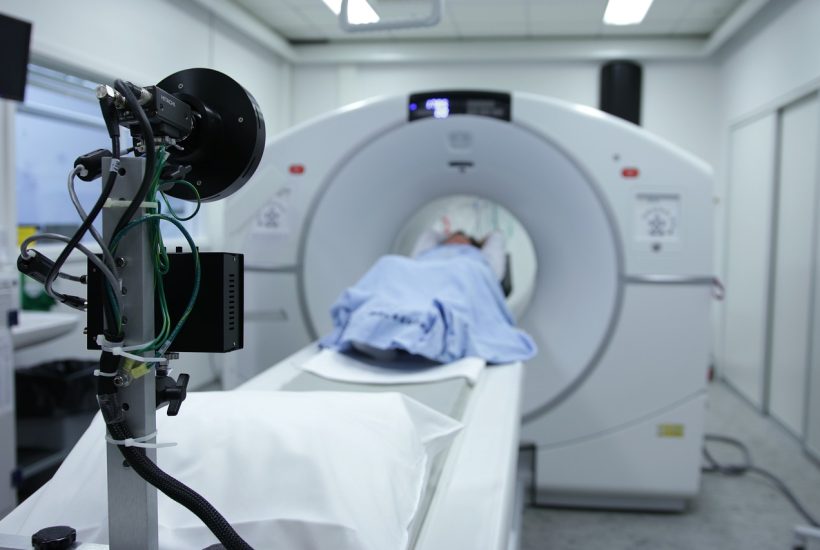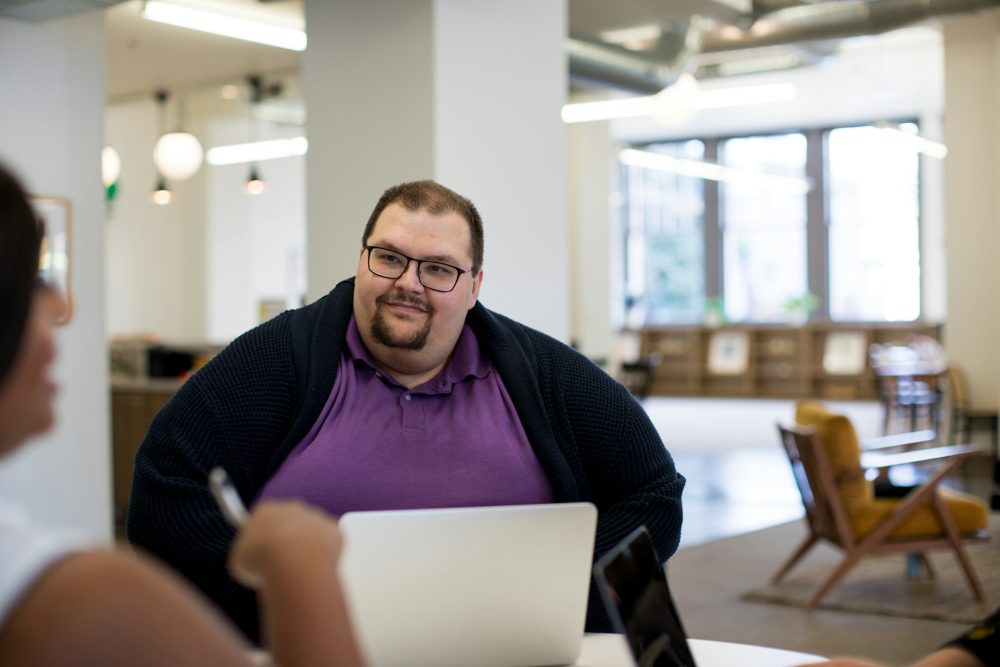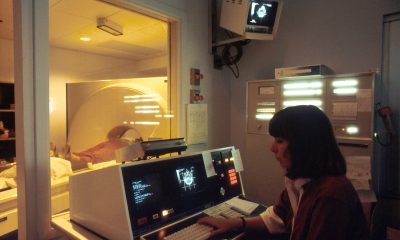Biotech
Methinks Secures 2.5M in European Funds to Strengthen its Stroke Technology
Methinks can effectively detect arterial occlusion in patients with suspected acute ischemic stroke. In addition, CT image processing time is less than two minutes. The software is able to work with images taken by non-contrast CT, which is less invasive and more universal (only half of the world’s hospitals can perform a contrast CT at any given time) than the contrast CT performed in these cases.

Methinks receives a financial boost to continue growing. The Spanish digital health company specializing in the early detection of stroke has received €2.5 million from the European Commission (EC) in the framework of the EIC Accelerator, according to Pau Rodríguez, CEO of Methinks.
The European Innovation Council is awarding this grant to the company, although the company may be eligible to receive up to fifteen million euros of investment through the EIC Fund, according to Rodríguez. The resources will allow the company to continue developing its artificial intelligence (AI) system against stroke, generate more scientific evidence and help bring the product to market. “There are very disruptive technologies, but there is no venture capital for such disruptive projects,” the executive explained.
Methinks solution is an AI-based medical image analysis software that provides universal access to stroke diagnosis and treatment through non-contrast computed tomography (CT) scans. For the development of the technology, Methinks relies on the collaboration of national and international experts, who test and refine the AI by continuously incorporating clinical data.
If you want to find more details about Methinks and to read the latest business news of the day, download for free our companion app. Don’t waste your time scrolling the internet, the born2Invest mobile app keeps its readers up to date with the latest financial affairs of the world.
Methinks has conducted studies in collaboration with Hospital Clínic de Barcelona, Vall d’Hebron, and Germans Trias i Pujol
Methinks, founded in 2016, enables hospitals to make accurate stroke diagnoses at any time so that patients can be quickly redirected to the nearest stroke unit with all the data needed to choose a personalized treatment.
The company has conducted several studies in collaboration with Hospital Clínic de Barcelona, Hospital Vall d’Hebron, and Hospital Germans Trias i Pujol de Badalona (Barcelona), three centers specialized in stroke, which has evaluated the effectiveness of Methinks software in improving the diagnosis of stroke patients.
Methinks can effectively detect arterial occlusion in patients with suspected acute ischemic stroke. In addition, CT image processing time is less than two minutes. The software is able to work with images taken by non-contrast CT, which is less invasive and more universal (only half of the world’s hospitals can perform a contrast CT at any given time) than the contrast CT performed in these cases. One of the main advantages offered by Methinks is the speed of image processing. Action in the first hours increases the chances of recovery and reduces sequelae and mortality.
Cristian Martí, an industrial engineer and entrepreneur, founded Methinks. Shortly afterward he was joined by Pau Rodríguez, also an industrial engineer and CEO of the company. The two of them, together with Carlos Crespo, as head of technology, and the engineer Cristina Granés, have formed the management team.
In addition to the founding team, the company’s board includes Marc Subirats, founder of Advance Medical; Joël Jean-Mairet, founder of Ysios Capital; Susan Wood, president of Vida Diagnostics; and Tudor Jovin, an expert in interventional and non-interventional treatment for the spectrum of stroke and cerebrovascular disorders.
__
(Featured image by Bokskapet via Pixabay)
DISCLAIMER: This article was written by a third party contributor and does not reflect the opinion of Born2Invest, its management, staff or its associates. Please review our disclaimer for more information.
This article may include forward-looking statements. These forward-looking statements generally are identified by the words “believe,” “project,” “estimate,” “become,” “plan,” “will,” and similar expressions. These forward-looking statements involve known and unknown risks as well as uncertainties, including those discussed in the following cautionary statements and elsewhere in this article and on this site. Although the Company may believe that its expectations are based on reasonable assumptions, the actual results that the Company may achieve may differ materially from any forward-looking statements, which reflect the opinions of the management of the Company only as of the date hereof. Additionally, please make sure to read these important disclosures.
First published in PlantaDoce, a third-party contributor translated and adapted the article from the original. In case of discrepancy, the original will prevail.
Although we made reasonable efforts to provide accurate translations, some parts may be incorrect. Born2Invest assumes no responsibility for errors, omissions or ambiguities in the translations provided on this website. Any person or entity relying on translated content does so at their own risk. Born2Invest is not responsible for losses caused by such reliance on the accuracy or reliability of translated information. If you wish to report an error or inaccuracy in the translation, we encourage you to contact us.

-

 Crowdfunding6 days ago
Crowdfunding6 days agoTasty Life Raises €700,000 to Expand Pedol Brand and Launch Food-Tech Innovation
-

 Biotech2 weeks ago
Biotech2 weeks agoDiscovery of ACBP Molecule Sheds Light on Fat-Burning Tissue Suppression and Metabolic Disease
-

 Cannabis2 days ago
Cannabis2 days agoCannabis Clubs Approved in Hesse as Youth Interest in Cannabis Declines
-

 Impact Investing1 week ago
Impact Investing1 week agoFrance’s Nuclear Waste Dilemma Threatens Energy Future
























